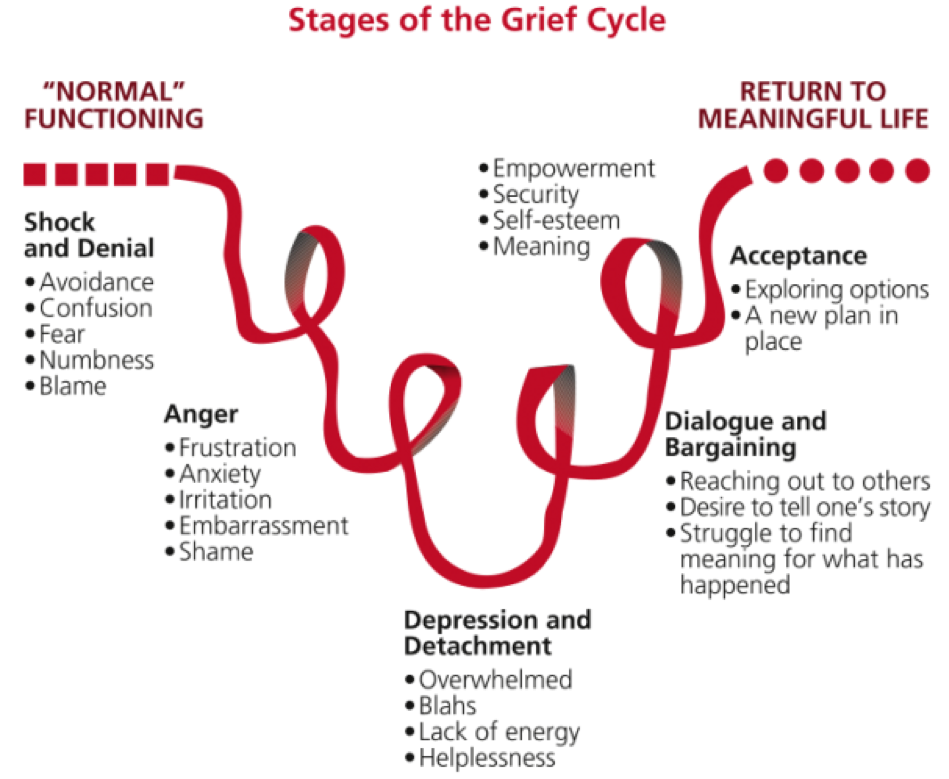“It is not the length of life, but the depth of life.” - Ralph Waldo Emerson
Each person has special memories of their loved one. The response to the death of a loved one depends on your personality and how you look at death. Do you believe in heaven and have a spiritual relationship with God?
Grief is a natural response resulting from a significant loss. Everyone deals with death differently. People laugh, cry, keep themselves busy with work or even feel numb. Some people recover quickly and others take a longer time.
Five Stages of Grief
For some people, grief can become very painful and the grief becomes complicated. It is harder for some people depending on the circumstances. Elizabeth Kubler-Ross has researched the five stages of death. She states there is denial, anger, bargaining, depression, and acceptance.
People who are grieving do not go through the stages in the same order. In each stage, there are responses and questions a person may ask themselves.
Denial and Shock
Anger
Depression and Detachment
Dialog and Bargaining
Acceptance
In denial and shock, the thought might be “This can not be happening”. In the anger stage, the question might be, why is this happening to me?” As the picture below shows many emotions can come into play such as frustration, irritation, and shame. When you are bargaining, a person is struggling for meaning and may reach out to others. In depression, the person has come to recognize the loss has occurred or will occur. The person may isolate themselves and spend time crying. Depression usually comes before acceptance. The person will work through and realize the loss.
5 Stages of Grief
Each person can go through the stages in different ways. A person finally accepts the loss and realizes, it will be okay. The person understands the death logically and they come to terms with all the emotions. If a person has complicated grief and feels their life is unmanageable and can not move on, then see a professional counselor and your pastor.
A counselor can help you complete an assessment of how much trouble you are having accepting the death, how much the grief is interfering with your life, and work through if you feel distant from others, cannot work and isolate yourself.
Helen Keller said, “What we have once enjoyed deeply we can never lose. All that we love deeply becomes a part of us.”



